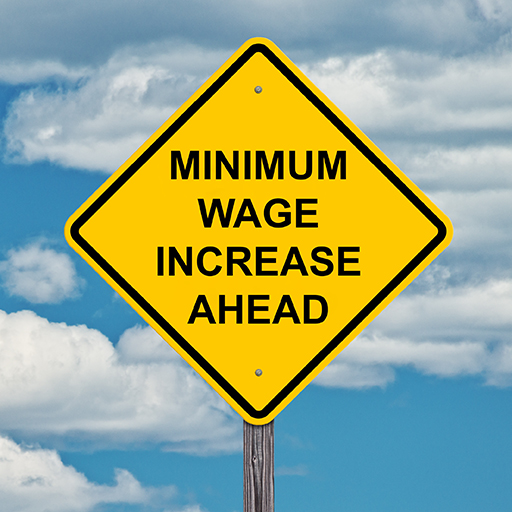On February 19, 2020, the Governor of Illinois, J.B. Pritzer, signed a bill that set the Illinois minimum wage on a path to reach $15 per hour by 2025. The year 2020 witnessed a $2 hike in the hourly wage rate in Illinois, and 2021 is witnessing yet another bump in the Illinois minimum wage: this time, it is a $1 hike.
As of January 1, 2021, through December 31, 2021, the Illinois minimum wage will be $11 per hour. Youth workers less than 18 years of age, working 650 hours or less in a calendar year, will earn $8.50 per hour. However, youth workers less than 18 years of age working more than 650 hours in a calendar year should be paid the full application minimum wage. Tipped employees will continue to earn a minimum wage that is 60% of the state’s minimum wage ($6.60 per hour).
In 2021 in Chicago, the minimum wage will increase to $15 per hour for large businesses. However, the minimum wage for smaller businesses will not reach $15 per hour until 2023. Therefore, Illinois employers should begin preparing for future budget challenges. Many employers have started evaluating how an increased minimum wage will affect them and have begun planning the way forward.
Why the Illinois Minimum Wage Increase is Happening
In the past, the minimum wage in Illinois was reassessed and re-evaluated each year. It was based on the values defined by the Consumer Price Index (CPI).
A proposal to hike the minimum wage in Illinois to $15 per hour by 2025 was approved by the Illinois House and Senate in early 2019. However, the bill was later rejected by Governor Bruce Rauner. To justify the rejection, he cited a study conducted by the University of Washington. According to the study, the income and working hours of low-wage workers decreased when the minimum wage was increased to $13 per hour in 2016.
The bill was later passed by Governor J.B. Pritzker in February 2020. This made Illinois one of the first states to hike the minimum wage to $15 per hour.
How Illinois Employers Should Prepare
Here are some quick tips to help you prepare for the minimum wage hike in 2021:
● Track Your Expenses: Audit your cash flow and devise a hiring plan that your company can easily afford. Assess and evaluate if hiring temporary workers is a more cost-effective option.
● Increase the Cost of Your Products and Services: Another way to prepare for the Illinois minimum wage hike is to increase the price of your products and services. While your customers will not be happy with the price rise, remember that your competitors will take similar measures.
● Discuss the Upcoming Minimum Wage Changes with Your Staff: To ensure you are geared for the minimum wage hike and stay in compliance, discuss the upcoming changes with your finance team and lawyer.
Ultimately, keep in mind the economies and benefits of hiring a staffing company when you need to replace employees. Managing recruiting on your own is a costly and time-consuming endeavor. You have to be able to find candidates who have solid track records, good recommendations, and are suitable for your company’s culture. If you aren’t equipped to do this, and you haven’t had good experiences hiring the right employees and training them well in the past, it’s time to consider outsourcing hiring.


